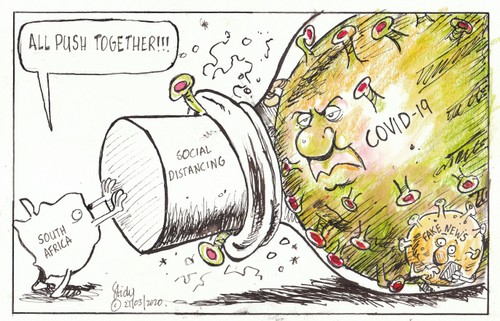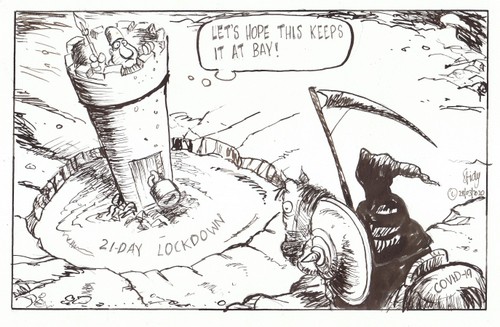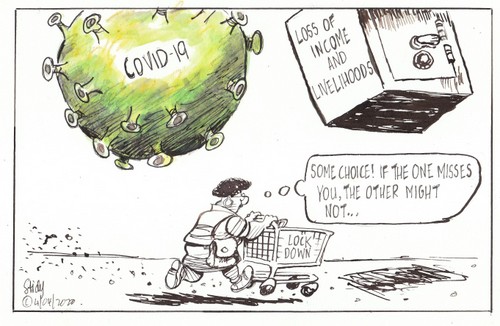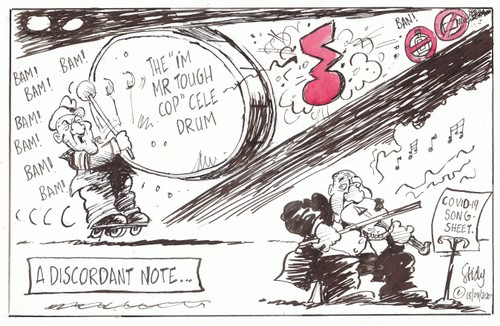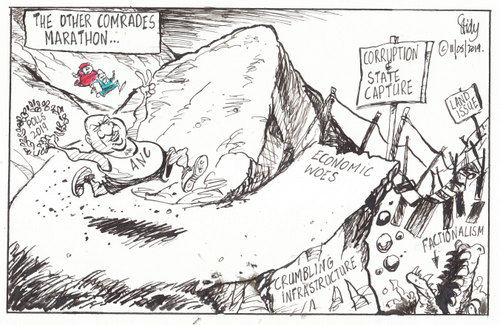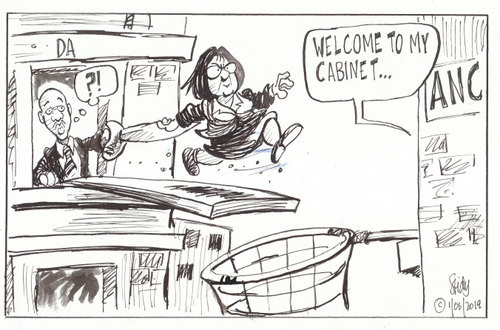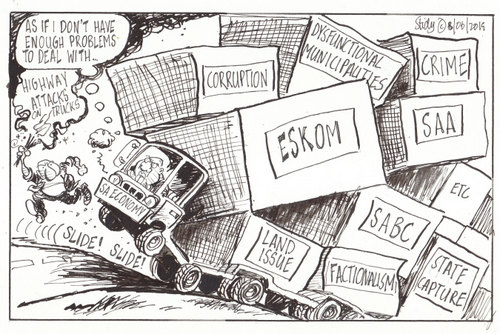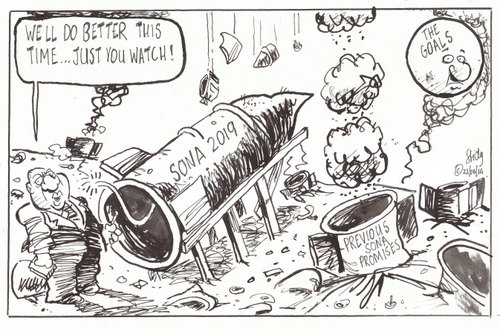SUMMARY:
The public’s faith in the ANC government’s ability to manage the Covid-19 crisis – initially high – began to fray as signs of disarray appeared within the party. The most striking example of this was over the cigarette sales ban. Having announced it would be lifted, President Cyril Ramaphosa was over-ruled, a few days, later by the Minister of Cooperative Governance and Traditional Affairs, Nkosana Dlamini-Zuma, who insisted the ban would stay, leaving many wondering just who was in charge? With Finance Minister, Tito Mboweni, complaining publicly that the government was losing millions a month in lost revenue it could ill-afford as a result of the ban, some journalists and opposition parties went so far as to suggest that Dlamini-Zuma had connections to the illegal cigarette trade.
There was even speculation that the radicals within the ANC, led by Dlamini-Zuma and Ace Magashule, were using the pandemic as a pretext for pursuing power.
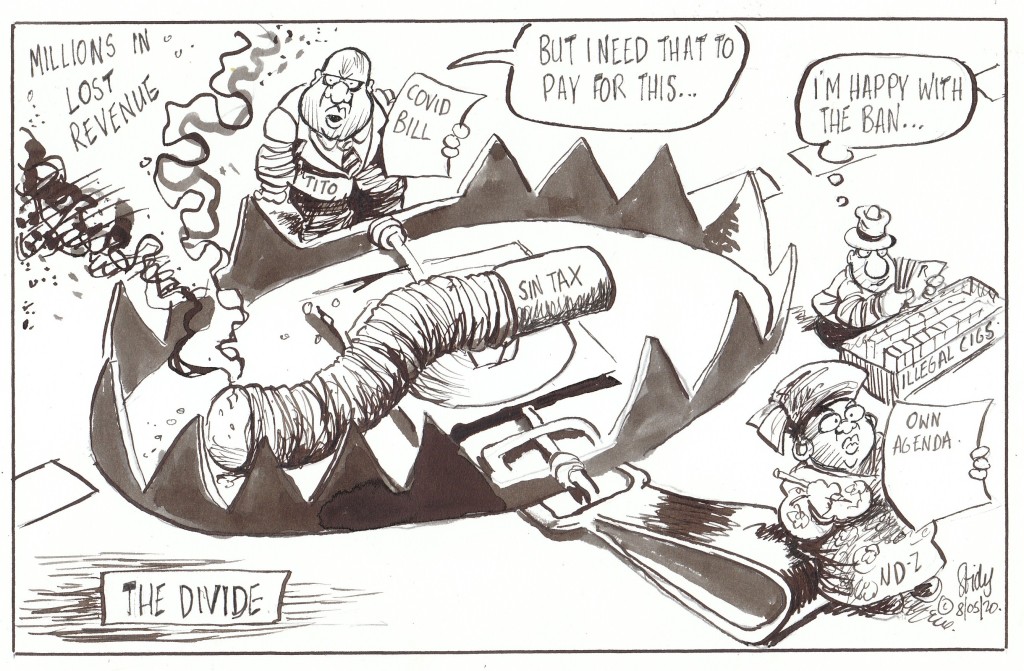
With public goodwill evaporating, as what started off as a health emergency increasingly turned in to a matter of law and order, many South Africans were anxious to hear what President Cyril Ramaphosa would have to say in his next address to the nation. In attempting to allay these fears, the clearly tired president said the Covid-19 lock-down had achieved its objectives so far, and had saved many lives, and as a result it was now possible to adopt a slightly more flexible approach depending on where high levels of infection occur.
He announced that the easing of restrictions would start at the end of May with the metropolitan areas of Gauteng, Cape Town and eThekwini the most likely to remain at Level 4.
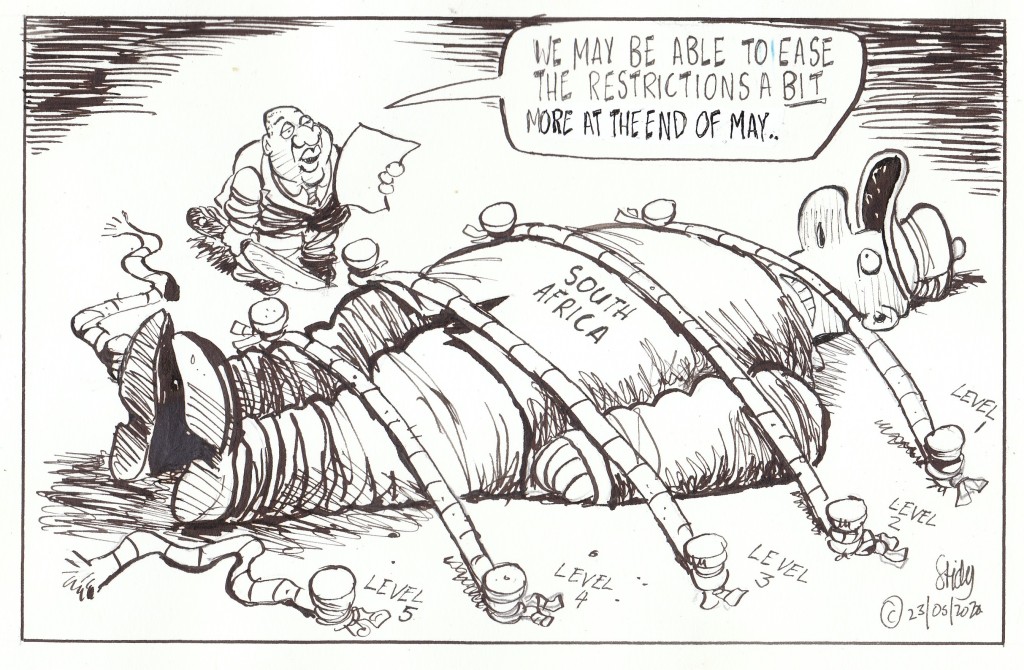
More than 40 000 people were expected to die from the corona-virus in South Africa by November, one million will be effected and the country is unlikely to have enough ICU beds at the peak of the pandemic according to projections by Health Minister, Zweli Mkhize, and members of a Covid-19 Modelling Consortium. The briefing came after intense criticism about the apparent lack of transparency over the modelling and other Covid-19 data.

With the easing of restrictions on religious gatherings the government appeared to abandon all pretence it was following the science or acting rationally. It also showed it was remarkably susceptible to pressure groups with many people questioning the need for the continuing ban on cigarette sales or why churches should be allowed to open their doors to up to 500 people when other organisations – such as restaurants and hair salons – couldn’t?

In a scathing rebuke to a government that postures as democratic-minded and rights conscious, the Pretoria High Court ruled that the regulations enforced upon South Africans under Level 3 and 4 of the nationwide lockdown to curb the spread of the Covid-19 corona-virus were “unconstitutional and invalid”. The court gave the government 14-days to amend the regulations that were still in play under Level 3.

In the wake of the global Black Lives Movement, triggered by the killing of George Floyd in the United States, a social media furore laid bare the experiences of black Africans at some of South Africa’s most celebrated private schools at the hands of both staff and pupils. The anti-racist account, “yousilenceweamplify” on Instagram, set up for past and current students at Herschel Girls High School in Cape Town quickly spread and prompted hash-tags denouncing racism from across the country, including Pietermaritzburg.

Without naming dates or specific security measures, President Cyril Ramaphosa announced that the grooming and personal care business will be allowed to open soon, along with sit-down restaurants, accommodation establishments, conference facilities, theatres, casinos, non-contact sport and contact sport (but only for training). He warned that as the country opens up the risk of infection “inevitable increases”.
This was followed by a warning from Finance Minister, Tito Mboweni, that South Africa was staring a debt crisis “in the eyes” as soon as 2024 if the country’s spending and economic outlook did not change dramatically.
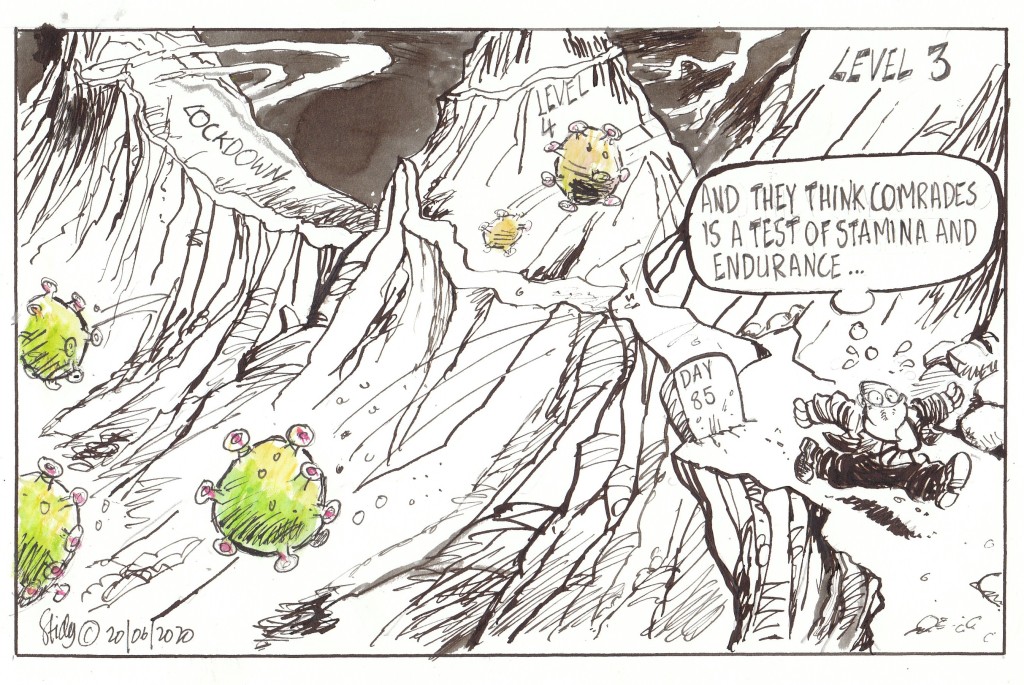
An ashen-faced Finance Minister, Tito Mboweni, could offer no green shoots during his emergency budget presentation, warning instead that South Africa would record its worst economic performance since the Great Depression with a projected contraction of 7.2%.
Invoking the image of a hippo’s wide-open jaws – to symbolise the gap between income and expenditure – the finance minister said that closing this gap was the Herculean task South Africa faced…



